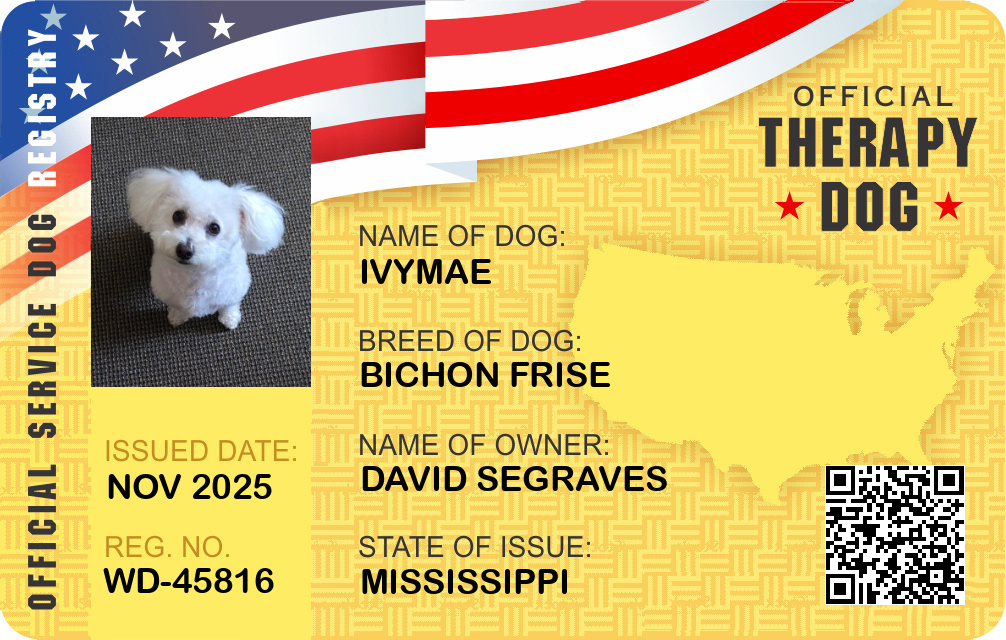Iowa Emotional Support Animal Laws

Overview of ESAs and Legal Definitions in Iowa
What is an Emotional Support Animal?
Emotional Support Animals (ESAs) are animals that provide a therapeutic benefit to individuals with mental or emotional disabilities. Unlike service animals, ESAs do not require specific training to perform a task related to a disability. They provide comfort simply by being with their owner, thus helping alleviate symptoms of psychological or emotional conditions. Their endorsement often comes through a direct recommendation from a licensed mental health professional, substantiating that the presence of the animal is beneficial to the individual's wellbeing.
How ESAs Differ from Service Animals
While shearing a sphere in supportive companionship with a service animal, there is a fundamental difference between the two. Service animals are individually trained to perform specific tasks to aid someone with a physical, sensory, psychiatric, intellectual, or other mental disability. Examples include guide dogs for the blind or dogs trained to alert a person with diabetes when their blood sugar is low. ESAs, by contrast, are not trained for any particular tasks and provide support purely through their presence. Consequently, ESAs do not have the same broad public access rights as service animals under the Americans with Disabilities Act (ADA).
Key Federal Laws Affecting ESAs (e.g., FHA, ACAA)
ESAs primarily fall under two significant federal legislations: the Fair Housing Act (FHA) and the Air Carrier Access Act (ACAA). The FHA mandates that individuals with disabilities have the right to keep an ESA in their homes, even if a housing provider typically restricts pets, as long as the accommodation is reasonable. The ACAA allowed ESAs to accompany their owners in aircraft cabins without additional charges; however, recent changes in Department of Transportation regulations have shifted ESAs' accommodation policies to align more closely with airlines' pet policies.
State-Specific ESA Laws in Iowa
Housing Rights and Responsibilities
In Iowa, ESA owners are protected under the Federal Fair Housing Act. Landlords are required to provide reasonable accommodations for ESAs, even in residences with "no pets" policies. However, the state supports landlords' rights to request proper documentation, such as an ESA letter from a licensed mental health professional. Housing providers may not charge additional fees for ESAs; however, the owner may be held accountable for any damages caused by the animal.
Public Access and Accommodation
Unlike service animals, ESAs do not have guaranteed access to public places such as restaurants or stores under state or federal laws. Businesses in Iowa may choose to allow ESAs at their discretion but are not legally required to do so. Consequently, ESA owners should communicate clearly and politely with business owners regarding the presence of their animals.
Transportation and Travel Rules
With the termination of ESA protections under the ACAA due to recent changes, ESAs no longer have automatic rights to travel in aircraft cabins for free. Each airline now sets its own policies for ESAs, frequently treating them as ordinary pets. ESA owners planning to travel should inquire with specific airlines regarding their ESA policies ahead of time and prepare for potential travel fees or alternative arrangements for their animals.
Employment and Workplace Considerations
Iowa does not have specific laws granting ESA access to workplaces. While the Americans with Disabilities Act provides reasonable accommodations for disabilities, ESAs do not qualify under the ADA as service animals. Therefore, requests for ESA accommodations at work fall to employer discretion. Many workplaces may choose to accommodate ESAs as part of inclusive, supportive employment practices, but they are not obligated by state or federal law to do so.
Documentation, Requirements, and Processes in Iowa
ESA Letters and Who Can Issue Them
The legitimacy of an Emotional Support Animal in Iowa hinges on documentation from a licensed professional, such as a psychologist, psychiatrist, social worker, or another mental health professional. An ESA letter should clearly state that the animal provides essential support to alleviate identified psychological symptoms. This document is essential in asserting an individual’s right to reasonable accommodation for housing purposes
Register Your Dog Instantly
under the FHA.Registration, Certifications, and Common Misconceptions
While there are numerous online services offering "registration" or "certification" of ESAs, these are often unnecessary and can be misleading. Iowa does not have a state registry for ESAs, and federal recognition of ESAs relies solely on proper documentation from a mental health professional, not any form of registration. Owners should remain wary of scams and ensure that their information is from a credible, reputable source.
Landlord, Business, and Provider Verification Rules
Landlords and housing providers in Iowa have the right to verify ESA letters, ensuring they come from a legitimate, licensed mental health professional. They may request additional proof if the letter appears questionable but cannot delve into detailed medical records or diagnoses. Similar discretion exists for business owners and service providers who may inquire about the animal’s purpose but cannot demand extensive personal information.
Rights, Limitations, and Legal Risks
Rights ESA Owners Have in Iowa
ESA owners in Iowa benefit primarily from housing rights under the federal FHA. If properly documented, their ESAs can live with them even in housing scenarios with no-pet policies. Additionally, they cannot be charged additional pet fees for the ESA’s accommodation.
Limits on ESA Protections and Common Restrictions
ESAs are not privy to public access rights of service animals, meaning their presence in public spaces falls entirely on the discretion of business owners. Moreover, despite housing protections, ESAs must abide by community rules of conduct, ensuring they do not pose a direct threat to health or safety or cause undue damage to property.
Penalties for Fraud or Misrepresentation
With incidents of ESA misrepresentation on the rise, Iowa, like other states, is stringent against fraudulent claims. Falsely claiming an untrained pet as an ESA or attempting to pass an ESA off as a service animal can result in hefty fines or eviction. ESA owners must maintain transparency and honesty in their ESA representation to avoid serious legal implications.
Practical Guidance for ESA Owners in Iowa
How to Qualify for an ESA Legitimately
To legitimately qualify for an ESA in Iowa, individuals should consult with a certified mental health professional familiar with their emotional or psychological condition. Upon determining an ESA’s beneficial role, the professional can issue a letter verifying the need for an ESA, which becomes the critical document for housing accommodation requests.
How to Talk to Landlords, Airlines, and Employers
When engaging with landlords or housing authorities, it’s essential to provide clear, concise documentation and explain the ESA’s role sensitively and calmly. Communication with airlines should occur well ahead of travel arrangements, as each carrier's policies may differ. In workplace scenarios, approaching HR with a formal request and supportive documentation increases the likelihood of accommodation where possible.
Tips for Avoiding Scams and Legal Problems
Potential ESA owners should obtain documentation from recognized mental health professionals rather than rely on online "registration" services. Caution should be exercised to ensure documentation is current and reflects genuine needs. Maintaining transparency about the ESA’s purpose at all times is critical in avoiding misrepresentation complications.
Summary of ESA Laws in Iowa
In summary, the landscape of ESA laws in Iowa is shaped both by federal regulations like the FHA and state-specific interpretations and applications.
- ESA owners have housing rights under the FHA, allowing them reasonable accommodation in most housing situations.
- ESAs do not have public or workplace accommodations rights similar to service animals; sensitivity and discretion apply.
- Proper documentation from a licensed mental health professional is essential, without dependence on unofficial ESA registration schemes.
- Fraudulent claims can yield significant legal consequences; transparency and authenticity remain paramount.
Understanding and adhering to the applicable laws is vital for ESA owners in Iowa to maintain their rights and responsibilities effectively and responsibly.











